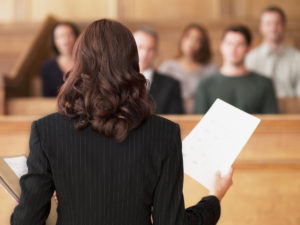
This is because the general public also has a First Amendment right, which the courts have consistently determined includes the media’s interest in open court proceedings. Keep reading to find out more about this topic. If you have been arrested for a crime, or have been accused of a crime, you can contact a criminal defense attorney by reaching out to Law Office of Michael L. Fell at (949) 585-9055.
Reasons Trials Are Generally Supposed to be Public
There are several public policy reasons given in favor of legal proceedings remaining public. First, it may help to encourage a fair trial. If the general public can see the justice system at work, it may be more difficult for the prosecution or judge to treat a defendant unfairly or unlawfully.
Second, public trials hold the criminal justice system accountable. When interested spectators are present, they may keep the jury, the judge, and the staff mindful of what their true responsibility is and how serious the results of their actions can be. In municipalities in which judges are elected, public trials also give said public the ability to observe the performance of their elected judges.
Though this is less true than in the past, it was historically the case that public trials were often an opportunity for potential witnesses to come forward. Today, the internet and other media can help to spread the word but in the past, public trials did. Finally, it is considered less likely that a witness will commit perjury if their testimony is known not just to the court but to the entire community.
What Qualifies a Trial as Public?
Just because a case is covered by the media does not mean it is public. Just because cameras are not allowed in a courtroom does not mean it is not public. So what does it mean for a trial to be “public?” According to the Sixth Amendment, members of the public and members of the press must have the opportunity to attend the trial and to then report what they have seen.
This requires that the trial be held in a public place and that spectators be allowed. However, this does not mean that trials must be easily accessible to the public. One example is an inmate who attacks a prison guard – the courtroom can be inside the prison even though it is not easily accessible to the public.
There must also be public notice of the proceedings, though this does not mean it must be advertised. It just means that court notices must be published in whatever the state considers its “legal organ” at least a week before the hearing takes place.

